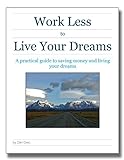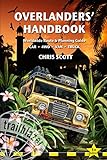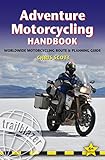Overland New Zealand Travel
Currency to display:
Contents
- 1 Visiting New Zealand
- 2 Entering New Zealand with a Car or Motorbike
- 3 Driving in New Zealand
- 4 Petrol and Diesel price in New Zealand
- 5 Safety and Security Considerations
- 6 Camping in New Zealand
- 7 Navigation
- 8 Special Overland Travel interests
- 9 Vehicle Maintenance
- 10 Buy or sell a car or motorbike in New Zealand
- 11 References
- 12 Helpful External links
Visiting New Zealand[edit]
New Zealand is known for being a country that is far from other places. Even Australia is not close. New Zealand has two main islands and a number of smaller islands. The capital city is Wellington, with the largest city being Auckland. Other cities in New Zealand include, Christchurch, Dunedin, Invercargill, Tauranga and Napier.
Entering New Zealand with a Car or Motorbike[edit]
Correct as of: June 2014 Entering New Zealand with a foreign vehicle requires a Carnet de Passage.
NZ operates stringent quarantine checks, just like Australia the car must be free of all mud, seeds and insects.
More information on temporary importing your vehicle can be found here: NZ Transport Agency The vehicle must also pass a warrant of fitness, garages can provide a WOF, however VTNZ can also sort out all your other paperwork.
Insurance is not required however you do have to pay the following:
- ACC levy (The Accident Compensation Corporation (ACC) provides comprehensive, no-fault personal injury cover for all New Zealand residents and visitors to New Zealand.)
- Road user charges (RUC) -For Diesel vehicles or vehicles over 3500kg RUC Information
The above charges can be paid for at VTNZ
Required Paperwork[edit]
(To check if you need a travel Visa for New Zealand, application instructions and fees see: New Zealand Visa online application at VisaHQ.com)
- Carnet de Passage
- Original vehicle registration Document (Must be valid)
Process at border[edit]
- Carnet de Passage Stamped by Customs (customs inspection not always required)
- Quarantine inspection
Cost of entry[edit]
State the cost for a vehicle to enter
Permitted length of stay[edit]
State the permitted length of entry for the vehicle
Extension of stay[edit]
Describe the process to extend the permitted length of entry for the vehicle, if possible.
Storing a vehicle and temporarily leaving the country[edit]
Describe if/how a vehicle can be stored, and for how long.
Also mention if the owner / temporary importer can leave the country while the vehicle is in storage.
A Vehicle may be stored in a private garage, private land, or in a locked "storage locker", so long as the vehicle is "off the road"
No current WoF (Warrant of Fitness) needs to be kept up to date, nor "on road user chargers" paid for the duration of non use ... However upon wanting to use the vehicle in the future, both of these documents must be sorted, (On road user charges don't have to be paid for time not being used on the road, likewise for a WoF.) BEFORE again using the vehicle on a road ...
A WoF may be done by most (accredited garages). Normally taking about an hour??? On Road User Charges for a vehicle may be paid at the NZ post office ... Stickers for both will be issued, and must be displayed on the vehicles wind screen in the appropriate place, when using the vehicle.
From my info, nothing stopping the owner leaving the country for any period of time, ... however should the vehicle be used while the person is overseas, it is normally up to the person caught using the vehicle to make sure the vehicle is road worthy, and documents (ie WoF and Road user charges) are up to date.
Exiting NZ, will be recorded on a NZ customs database records, meaning return entry into NZ will signal to authorities, persons return, ... if the vehicle has been involved in any sort of recorded problem ... said owner may be questioned upon arrival at the customs entry hall ... if it is deemed serious enough event. Their dates of exit (and return into NZ), will have been noted by both police and customs. But anybody not being a NZ citizen, risks being refused return entry into NZ, because of any serious offence of the user of the vehicle in the owners absence!
Exiting with a vehicle[edit]
Describe the paperwork requirements and process at the border to exit.
Driving in New Zealand[edit]
Recommended books for Overlanding in New Zealand[edit]
Travel insurance for New Zealand[edit]
World Nomads offer the most flexible Travel Insurance at the best prices for multi-country / multi-year trips. You can buy, extend and claim online, even after you've left home.
Vehicle insurance requirements[edit]
Vehicle insurance is not required by law, but third-party insurance is strongly suggested.
Cost of vehicle insurance[edit]
3rd Party Insurance for vehicles in New Zealand is typically around $200-$300 NZD per year.
Where to purchase vehicle insurance[edit]
Vehicle insurance can be purchased simply online via many companies such as AA, State, Tower etc.
Driving licence[edit]
International Driving Licences and Permits You can legally drive in New Zealand for up to 12 months if you have either a current driver's licence from your home country or an International Driving Permit (IDP). After 12 months you are required to convert to a New Zealand licence. This applies to each visit to New Zealand.
You can drive in New Zealand if you hold a driver licence or driving permit from another country and:
- your overseas licence or driver permit is current and valid, and
- you've not received a disqualification or suspension in New Zealand, and
- you entered New Zealand less than 12 months ago, and
- your overseas licence is in English; if it's not, you must have an accurate translation, and
- you've not been granted a New Zealand driver licence, and
- you have not renewed, requalified or reinstated a New Zealand driver licence since you last entered New Zealand.
In New Zealand all drivers, including visitors from other countries, must carry their licence or permit at all times when driving. You will only be able to drive the same types of vehicles you are licensed to drive in your home country. The common legal age to rent a car in New Zealand is 21 years.
Make sure your driver's licence is current. If your licence is not fully written English, you must bring an English translation with you or obtain an IDP. Contact your local automobile club for further details about obtaining a translation or an IDP.
A translation of your overseas licence or permit can be issued by:
A translator approved by the NZ Transport Agency, a diplomatic representative at a high commission, embassy or consulate; or The authority that issued your overseas licence (an international driving permit may be acceptable as a translation). It is important to note that if you are caught driving without an acceptable English translation or an IDP, you may be prosecuted for driving unlicensed or for driving without an appropriate licence. You will be liable for an infringement fee of $400.00 NZD, or up to $1,000.00 NZD RHD vehicles can be driven in New Zealand without a problem.
Mandatory items in vehicle[edit]
There are no mandatory items that must be carried in a vehicle, however, a fire extinguisher and first aid kit are recommended.
Roads[edit]
General Road quality[edit]
Give a brief description of the general road quality. Mention if one way streets are common.
Road signs[edit]
All tarmac (hard seal) roads are well sign posted, with speeds clearly signposted. Most corners/curves (suggested speeds) are also signposted, as to "suggested" speed at which to take said corner ... This indicated speed is conservative for a standard car, as weather conditions being taken, as "worse case" ie rain and wind, to take said corner ...
Toll roads[edit]
List the frequency and approximate price of toll roads. Only a few "toll" roads, but more stretches or tunnels, well indicated and marked before you enter said area, with places to leave the road to avoid the toll. Tolls can be paid over the internet, unless otherwise stated and charged before entering the road/tunnel
Bribery in New Zealand[edit]
No Bribery
Checkpoints[edit]
New Zealand Police use alcohol checkpoints on any road, at any time of day or night, as a means to deter driving whilst intoxicated. Getting caught with excess breath or blood alcohol, or with drugs impairing you is treated very seriously.
There are many speed traps (either Police or speed cameras) around New Zealand that come with fines for excess speed (5 km/h or more over the speed limit) ranging from $80.00 NZD to $630.00 NZD.
Travelling with pets[edit]
List the entry requirements and anything else required to travel with a pet.
Petrol and Diesel price in New Zealand[edit]
Last updated: April 2019
Currency and unit to display:
| Petrol Grade | Price |
|---|---|
| Unleaded | $2.30 NZD per Liter[1] |
| Diesel | $1.75 NZD per Liter[2] |
Petrol and Diesel Availability / Frequency[edit]
Briefly describe if petrol shortages are known to occur.
Also state the approximate average distance between petrol stations. This is a very rough estimate.
Petrol and Diesel Quality[edit]
Discuss if petrol / diesel considered "clean" or "dirty", and generally high or low quality.
State the sulphur content of diesel, if known.
Safety and Security Considerations[edit]
Driving at night[edit]
Discuss driving at night and if it should it be avoided. Mention why.
Vehicle parking[edit]
Discuss if vehicles can be parked on the street, if they are considered "safe" at night. If vehicles can not be parked on the street, list the other options that exist.
Special driving considerations[edit]
A List of special things to be careful of (i.e. Unsigned speed bumps, abnormal road rules, people or animals on the road, etc.).
List any roads that are not recommended to drive for safety or other security reasons.
Security advisories and information[edit]
- Country Specific Information - U.S. Department of State
- Travel Reports and Warnings - Foreign Affairs and International Trade Canada
- Travel advice by country - Foreign and Commonwealth office (U.K.)
- Travel Advice for New Zealand - Australian Department of Foreign Affairs and Trade
Camping in New Zealand[edit]
North & South Island: Organized "pay" camping is very common. There are normally showers and restrooms available at the campsites. A large majority have pay-to-use wireless internet connections available. As of June 2014 the approximate price of one camping site a night was $30.00 NZD.
DOC campsites exist in most national parks, the facilities of these sites vary from no facilities or just a drop toilet, to full facilities with power and hot showers. DOC campsites in general as much cheaper than commercial campsites.
Department of Conservation (DOC) Rankers - Every Campsite in NZ
Camping guide books[edit]
List and link to books specifically for camping.
Drinking water[edit]
Tap water is safe to drink, most DOC sites have safe drinking water NZ water is considered safe to drink from tap in all of NZ, unless some emergency has rendered it temporarily unhealthy, in which case local authorities will use local media to let all locals know of the "temporary" problem associated with the water, and recommend how to treat tap water, (most of the time, to simply boil any water before consuming), or to buy from local shops or supermarkets etc
[edit]
Paper maps[edit]
Reise Know-How are amoung the best paper maps. Purchase paper maps before arriving in New Zealand
GPS Maps of New Zealand[edit]
Review different GPS companies, quality and coverage (Tomtom, Garmin, OSM, Tracks4Africa). (with links to each).
GPS co-ordinates for camping, propane, gas, repairs, etc. in New Zealand[edit]
- iOverlander is a website and iPhone application designed by Overlanders, for Overlanders. It contains GPS co-ordinates and reviews for camping, hotels, propane, water, mechanics, borders and much more.
Link to sites that have a list of GPS co-ordinates (or directions) for camping locations (including "wild" campsites), propane filling, gas stations, repair shops, places of interest, etc.
Special Overland Travel interests[edit]
List any special items / places that are popular with Overlanders
- Rainbow Road
- Clarence Valley
- Molesworth Station
Vehicle Maintenance[edit]
Dealers[edit]
4x4s / Trucks
- Toyota Global Dealer Locator
- Land Rover International Dealer Locator
- Mercedes Benz International (select country on bottom right)
- Jeep International site locator
Motorbikes
Local Garages[edit]
Add known good mechanics here.
Buy or sell a car or motorbike in New Zealand[edit]
Buy
Describe how a foreigner can buy a vehicle.
List any difficulties or limitations on where the vehicle can be driven.
Sell
Describe how a foreigner can sell a foreign-plated vehicle, or list not possible.'
References[edit]
Links to the source of any information - blogs or discussion forums, etc.
- ↑ http://www.mytravelcost.com/New-Zealand/gas-prices/ TravelCost website
- ↑ http://www.mytravelcost.com/New-Zealand/gas-prices/ TravelCost website
Helpful External links[edit]
Add any helpful external links here.
- NZ 100% Pure - Tourism Website
- DOC Campsite information, trails and off road routes
- Reviews of Scenic and off road trails
- New Zealand: Visa and Passport requirements | World Travel Guide
- Health Information for Travelers to New Zealand - Center for Disease Control and Prevention
- New Zealand travel guides at wikivoyage
- New Zealand - Wikipedia, the free encyclopedia






